Related Research Articles
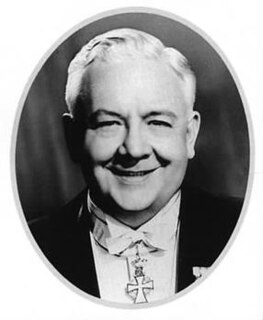
Lauritz Melchior was a Danish-American opera singer. He was the preeminent Wagnerian tenor of the 1920s, 1930s, and 1940s and has come to be considered the quintessence of his voice type. Late in his career, Melchior appeared in movie musicals and on radio and television. He also made numerous recordings.

The Metropolitan Opera is an American opera company based in New York City, resident at the Metropolitan Opera House at Lincoln Center, currently situated on the Upper West Side of Manhattan. The company is operated by the non-profit Metropolitan Opera Association, with Peter Gelb as general manager. As of 2018, the company's current music director is Yannick Nézet-Séguin.
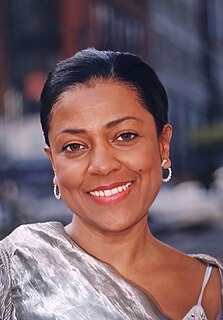
Kathleen Deanna Battle is an American operatic soprano known for her distinctive vocal range and tone. Born in Portsmouth, Ohio, Battle initially became known for her work within the concert repertoire through performances with major orchestras during the early and mid-1970s. She made her opera debut in 1975. Battle expanded her repertoire into lyric soprano and coloratura soprano roles during the 1980s and early 1990s, until her eventual dismissal from the Metropolitan Opera in 1994. She later has focused on recording and the concert stage. After a 22-year absence from the Met, Battle performed a concert of spirituals at the Metropolitan Opera House in November 2016.
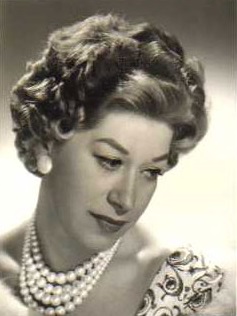
Regina Resnik was an American opera singer who had an active international career that spanned five decades. She began her career as a soprano in 1942 and soon after began a lengthy and fruitful relationship with the Metropolitan Opera that spanned from 1944 until 1983. Under the advice of conductor Clemens Krauss, she began retraining her voice in the mezzo-soprano repertoire in 1953 and by 1956 had completely removed soprano literature from her performance repertoire.

Marcelo Raúl Álvarez is an Argentine lyric tenor who achieved international success starting in the mid-1990s.
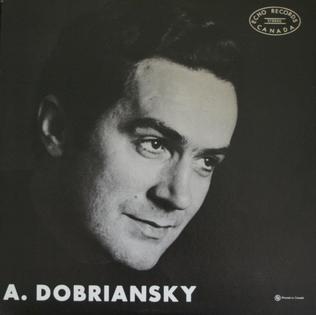
Andrij Dobriansky was a principal artist with the Metropolitan Opera for 30 years where he sang over 60 roles in over 900 performances. As a displaced person in post-war Germany, he earned a scholarship to study chemistry at Amherst College, but later decided to forgo chemistry and pursued a career in opera. The bass-baritone had the longest career with the Met of any Ukrainian-born artist.

Charles Anthony Caruso, better known by his stage name of Charles Anthony, was an American actor and tenor noted for his portrayal of comprimario characters in opera. Anthony had the distinction of appearing in more performances at the Metropolitan Opera than any other performer. He celebrated his fiftieth anniversary with the company in 2004, and gave his farewell in the role of the aged Emperor Altoum in Turandot, at the Met, on January 28, 2010.

Antonio Scotti was an Italian baritone. He was a principal artist of the New York Metropolitan Opera for more than 33 seasons, but also sang with great success at London's Royal Opera House, Covent Garden, and Milan's La Scala.

Rose Bampton was an American opera singer who had an active international career during the 1930s and 1940s. She began her professional career performing mostly minor roles from the mezzo-soprano repertoire in 1929 but later switched to singing primarily leading soprano roles in 1937 until her retirement from the opera stage in 1963.
William L. Lewis is an American operatic tenor and academic.
Walter Cassel was an American operatic baritone and actor. He began his career singing on the radio during the mid-1930s and appeared in a couple of Hollywood musical films in the late 1930s. He made his first stage appearances in a handful of Broadway productions during the late 1930s and early 1940s. He began his opera career at the Metropolitan Opera in 1942, and went on to have a long and fruitful association with that house that lasted until his retirement from the stage in 1974. In addition to working with the Met, Cassel was also a regular performer with the New York City Opera between 1948 and 1954 and worked frequently as a freelance artist with important opera companies on the international stage as well as in the United States.
Norman Scott was an American operatic bass. He had a long and fruitful association with the Metropolitan Opera in New York City from 1951 up until his death seventeen years later. His repertoire at the Met included well over 50 roles, and he gave a total of 927 performances at the house during his career. A talented actor with an excellent sense of comic timing, Scott excelled in playing secondary characters that were often humorous in nature. Although initially a comprimario singer, Scott was eventually given opportunities to tackle larger leading roles at the Met, and he spent much of his career at that house going back and forth between leading and secondary roles. Although Scott spent the majority of his career at the Met, he did occasionally perform with other opera companies both in the United States and abroad. A major personal triumph came in 1953 when he sang the title role in Béla Bartók's Bluebeard's Castle at the Holland Festival.
Peter Sliker was an American operatic bass-baritone who had a lengthy career performing at the Metropolitan Opera from 1961 through 1989. He specialized in portraying comprimario roles and was admired for his comic timing. He has appeared on several Live from the Metropolitan Opera broadcasts and Metropolitan Opera radio broadcasts.

Georgy Andreyevich Baklanoff, known as Georges Baklanoff was a Russian operatic baritone who had an active international career from 1903 until his death in 1938. Possessing a powerful and flexible voice, he sang roles from a wide variety of musical periods and in many languages. He was also highly praised by audience and critics for his acting abilities.

Mark Delavan is an American operatic bass-baritone. He was a national finalist of the Metropolitan Opera auditions and an Adler Fellow with the San Francisco Opera.
Janis Martin was an American opera singer who sang leading roles first as a mezzo-soprano and later as a soprano in opera houses throughout Europe and the United States. She was particularly known for her performances in the operas of Richard Wagner and sang at the Bayreuth Festival from 1968 to 1997.
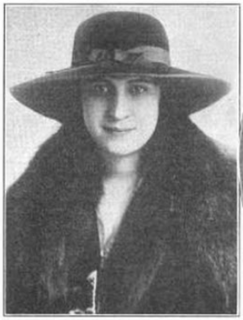
Myrna Docia Sharlow was an American soprano who had an active performance career in operas and concerts during the 1910s through the 1930s. She began her career in 1912 with the Boston Opera Company and became one of Chicago's more active sopranos from 1915–1920, and again in 1923–1924 and 1926–1927. She sang with several other important American opera companies during her career, including one season at the Metropolitan Opera. She made only a handful of opera appearances in Europe during her career, most notably singing in the English premiere of Riccardo Zandonai's Francesca da Rimini at Covent Garden in 1914. Her repertoire spanned a wide range from leading dramatic soprano roles to lighter lyric soprano fair and comprimario parts. She even performed a few roles traditionally sung by mezzo-sopranos or contraltos.
Kevin Short is an American operatic bass-baritone. A graduate of Morgan State University, the Curtis Institute of Music, and the Juilliard School, he won the bass-baritone award for the Middle Atlantic region Metropolitan Opera National Council Auditions in 1989. From 1991 to 1998 he appeared annually at the Metropolitan Opera, singing in a total of 129 performances. He notably created the role of Joseph in the world premiere of John Corigliano's The Ghosts of Versailles in 1991. Some of the other roles he has performed at the Met are Colline in La Bohème, the Friar in Don Carlos, Happy in La fanciulla del West, the Jailer in Dialogues of the Carmelites, Lackey in Ariadne auf Naxos, Mandarin in Turandot, Masetto in Don Giovanni, Sciarrone in Tosca, Pirro in I Lombardi alla prima crociata, Yamadori in Madama Butterfly, and Zaretsky in Eugene Onegin. He also sang several roles with the New York City Opera during the 1980s and 1990s, including Nourabad in The Pearl Fishers and Raimondo in Lucia di Lammermoor.
Gene Boucher was an American operatic baritone. His career was chiefly associated with the Metropolitan Opera where he performed annually from 1965 until 1984 in more than 1000 performances in mainly comprimario roles. In 1964 he won the Metropolitan Opera National Council Auditions. In 1966 he created the role of Dolabella in the world premiere of Samuel Barber's Antony and Cleopatra.
Robert Goodloe is an American baritone who was committed to the Metropolitan Opera in New York City from 1964-1982 where he gave nearly a thousand performances. While primarily a comprimario performer at the Met, he did portray some leading roles; including Eisenstein in Die Fledermaus, Enrico in Lucia di Lammermoor, Marcello in La boheme, and Sharpless in Madama Butterfly. In 1966 he created the role of Thidias in the world premiere of Samuel Barber's Antony and Cleopatra for the grand opening of the Metropolitan Opera House at Lincoln Center. His performances are preserved on several recordings made for Live from the Metropolitan Opera and the Metropolitan Opera radio broadcasts.
References
- 1 2 3 Harold C. Schonberg (November 6, 1977). "Memories of a Baritone Who Set Records At the Met". The New York Times .
- ↑ "Metropolitan Opera Performance Archives". New York City: Metropolitan Opera. 21 September 2012. Retrieved 21 September 2012.
- ↑ Will Crutchfield (March 29, 1986). "George Cehanovsky, Singer; with MET Opera for 60 Years". The New York Times .